100,000-cow-power dairy farm in China to feed Russian market
Updated: 2015-07-09 11:14
By William Hennelly(China Daily USA)
|
||||||||
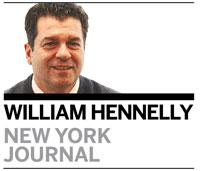 They say that money is the mother's milk of politics. In this case, it's just the milk.
They say that money is the mother's milk of politics. In this case, it's just the milk.
A 100,000-cow dairy farm is being constructed in Northeast China to supply the Russian market with milk and cheese, in what can be construed as agricultural geopolitics.
Russia has extended an import ban of most agricultural products from the United States, Canada, Europe, Australia and Norway until August 2016, in retaliation for recently renewed Western economic sanctions over Russia's military moves in Ukraine and Crimea.
The new dairy site is in Mudanjiang City, Heilongjiang province, Zhang Chuntszyao, chairman of the Association of Applied Economics of Heilongjiang province told Interfax on Monday.
Russia's ban was originally scheduled to expire in August, but was extended in late June in response to the renewal of Western sanctionsthrough January.
It will be the world's largest dairy farm and will be funded with 1 billion yuan ($161 million) from Russian and Chinese investors. China's Zhongding Dairy Farming and Russia's Severny Bur will work together on the project.
China already is home to the world's largest dairy operation, a 40,000-cow unit of the Maanshan, Anhui province-based China Modern Dairy Holdings Ltd, which operates 24 farms throughout the mainland.
The largest US dairy farm is in Fair Oaks, Indiana, where 30,000 cows ply their trade.
Earlier this month, China's Huae Sinban Co signed an agreement to lease 115,000 hectares (284,000 acres) in Russia's Transbaikal region for feedstock, according to state-run Russia Today. The company is expected to invest about $450 million in the project over the next half century.Huae Sinban plans to lease up to 200,000 hectares in Russia if the first stage of the project from 2015-2018 works out.
Mansel Raymond, chairman of the Milk Working Party Copa-Cogeca, an organization representing European agricultural groups, said the ban and the Sino-Russian dairy venture are a concern for EU dairy farmers.
"The scale of Chinese investment in dairy production is vast," Raymond told UK-based Farmers Weekly. "I wonder now whether we will ever get the Russian milk market back.
"Building a 100,000-cow dairy farm is simply mind-boggling. If the project goes ahead and the 100,000 head represents milking cows, this unit alone could produce 800 million liters a year (about 200 million gallons).
"In that case, it would equate to 100,000 tons of cheese – and that would mean this unit alone could produce about 30 percent of our previous exports to Russia," Raymond added.
In August 2014, when the Russian agricultural-product sanctions were first imposed, they were estimated to affect about one-tenth of Russia's $43 billion in yearly food imports, straining both foreign suppliers and Russian consumers, the Los Angeles Times reported.
"The food embargo by Russia that began in August of 2014 impacts approximately $1 billion of the $1.4 billion of ag and food products that the US sold to Russia," David Salmonsen, senior director of congressional relations for the American Farm Bureau Federation, said in an e-mail to China Daily. "Those most impacted are Russian consumers and European farmers who had a large share of food exports to Russia."
EU countries were shipping about $2.7 billion in produce a year to Russia, and the embargo's impact will be felt unevenly among the 28 countries in the EU, analysts said.
"For the larger EU economies - Germany included - the costs are bearable. For some of the smaller EU economies, the pain will be more acute," the Times reported, quoting RBS Capital.
Contact the writer at williamhennelly@chinadailyusa.com
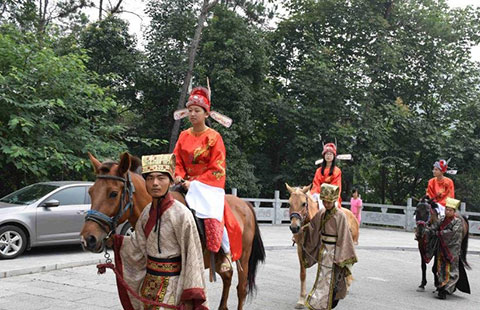
 Top gaokao scholars saddle up for a ride in the park
Top gaokao scholars saddle up for a ride in the park
 Girl who shoots straight with bow and arrow
Girl who shoots straight with bow and arrow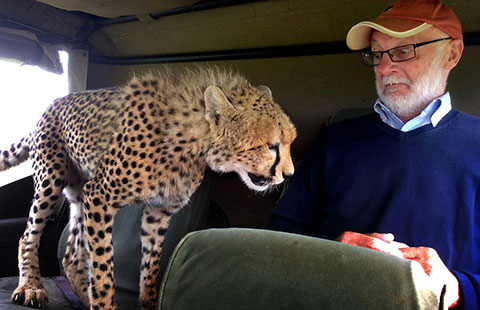
 Ten photos you don't wanna miss - July 10
Ten photos you don't wanna miss - July 10
 Forum Trends: Should we pay children to study?
Forum Trends: Should we pay children to study?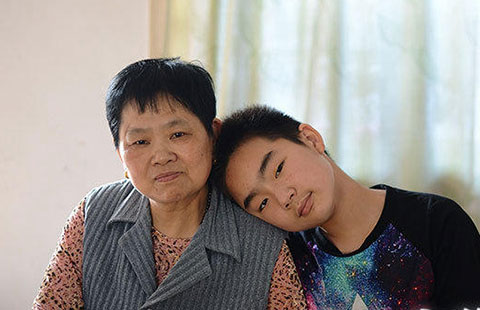
 Bereaved seniors turn attention to grandchildren
Bereaved seniors turn attention to grandchildren
 Unusual but true: sleep in a transparent glass room clinging to cliff
Unusual but true: sleep in a transparent glass room clinging to cliff
 24-year-old ethnic Chinese girl runs for US Congress
24-year-old ethnic Chinese girl runs for US Congress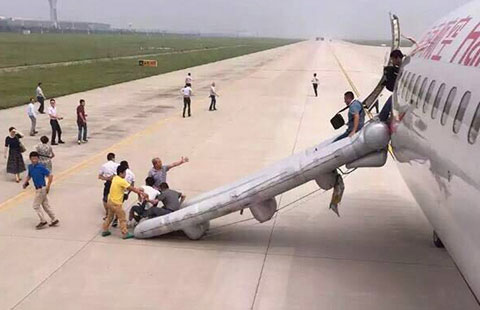
 Plane makes emergency landing after fire
Plane makes emergency landing after fire
Most Viewed
Editor's Picks

|

|

|

|

|

|
Today's Top News
Leaders agree on partnership blueprint
New Development Bank launched in Ufa
IMF keeps 6.8% China growth view
Leaders agree on partnership blueprint
More tariffs on Chinese solar panels
Students study depression to raise suicide awareness
Official denial raises doubts over '40-year-old meat' story
Yuan hit by turmoil in the market
US Weekly

|

|







